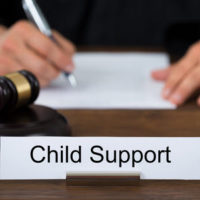Making and Receiving Child Support Payments through Florida’s State Disbursement Unit

The Florida State Disbursement Unit, also known as the FLSDU, receives and sends out child support payments. Congress requires that all child support payments, no matter what state, must be made through centralized disbursement centers. This simplifies the process, and provides accountability and a single point of contact for everyone involved in the process.
How Does the Florida State Disbursement Unit Work?
The Florida Department of Revenue runs the Florida State Disbursement Unit, so some people may use the names interchangeably, but they are actually separate departments. Child support recipients can log on to the site and determine current payment status. They can elect to have incoming payments direct deposited into his or her savings or checking account, or sign up for a prepaid Visa card. The prepaid smiONE Visa automatically puts support payments in the card account, which you can then use to withdraw cash or make purchases. There are potential downsides to this payment method, especially relating to fees incurred to make balance inquiries or withdraw funds from an ATM.
Some people have their payments managed by employer deductions through the use of an Income Deduction Order/Notice. Employers can send payments for all employees to one central place. If they happen to be withholding payments for multiple cases at the same time, the employer can opt to pay with only one check and denote how much goes to each case.
Parents who opt to make child support payments directly to the court must do so in person at the Clerk of the Court for the county in which the support order was issued. Because they use a different computer system from the FLSDU, there may be a balance discrepancy for a short time.
Sending Child Support Payments
Child support payments can be made in several different ways if you aren’t having it deducted from your paycheck. One option is through electronic checks and credit cards online, which are processed within three to five business days. Utilize the ExpertPay website and make payments from your checking or savings account. If you are just signing up for this process, do it long before the payment is due, as there is a three-day registration period and then the first payment won’t reach the FLSDU until 10 to 11 days later, with further payments arriving in around eight days. Other options include personal checks, provided there has been no instances of checks being returned for insufficient funds, or sending cash through a money transfer system, which can take up to four or five days.
What Happens if a Parent Misses a Payment?
If a parent misses a payment, the FLSDU helps enforce active child support orders. Some of the tactics they may use to collect on missed payments include:
- Sending a late notice of payment
- Suspending the parent’s driver’s license
- Reporting late payments to applicable credit agencies
- Suspending professional or business licenses
- Putting a lien on personal property
- Taking possession of federal income tax refunds
- Garnishing the parent’s wages
- Seizing any Florida lottery winnings that exceed $600
- Seizing payments from worker’s compensation or re-employment
- Levying bank accounts
- Negotiating with the parent to collect on past due support
Retaining a Boca Raton Family Law Attorney
If you need assistance with enforcing a child support order, contact our experienced Boca Raton child support lawyers at the Law Offices of Schwartz | White to schedule a consultation. Our team of attorneys can also assist with any other family law related matters, including the pursuit of child support in the first place.
Resource:
floridarevenue.com/childsupport/Pages/payment.aspx


